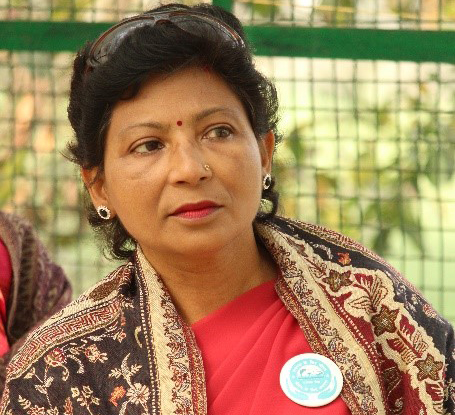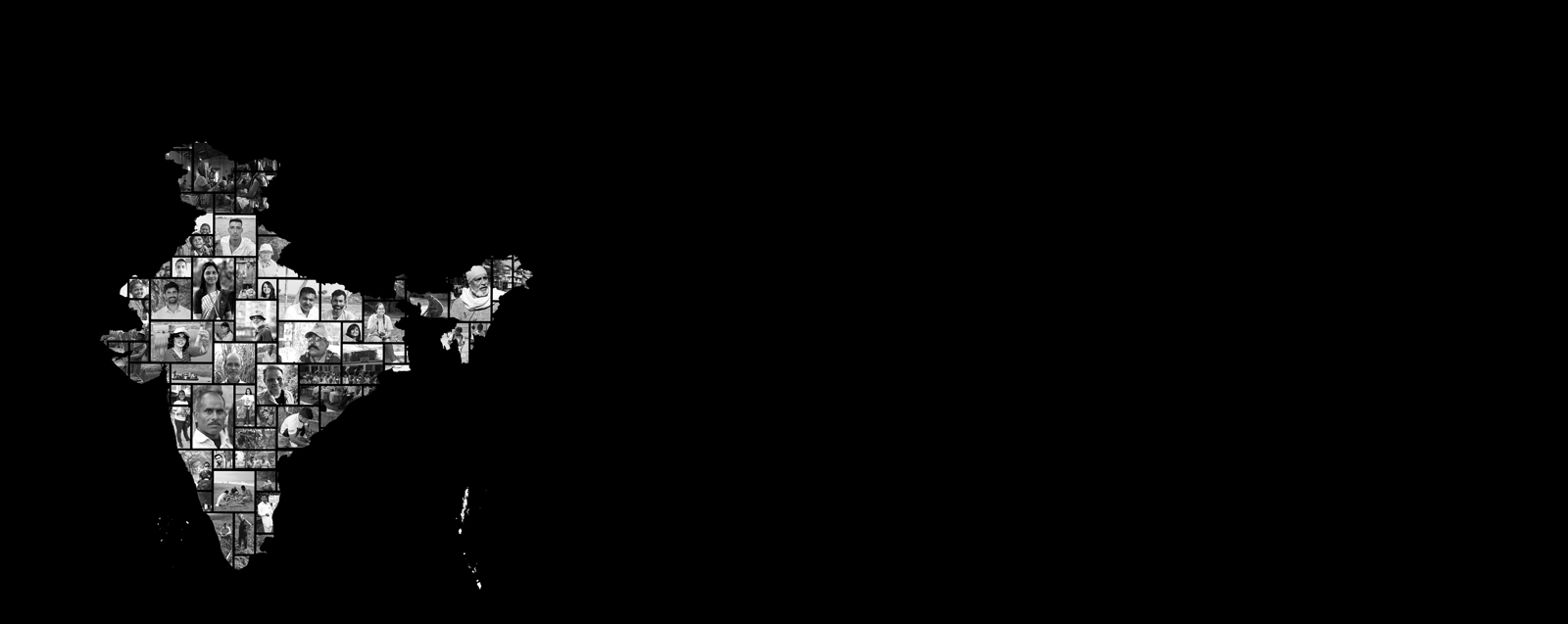Led by scores of grassroots leaders and their organisations, a subtle change is sweeping across India. A graduate in Social Work from Bareilly College, Praveen Bhandari of Asha Samuh is one such leader. Praveen and her Self Help Group (SHG), Asha Samuh are associated with WWF India as a Ramganga Mitra (friend of the river Ramganga). She raises community awareness about the conservation of the river Ramganga — a tributary of Ganga, waste management, environmental protection, but also women/girl child’s education and economic empowerment.
The 58 -year-old doggedly pursued several social initiatives across Bareilly, Mohanpur, Nakatiya, Mirganj, Chandosi and surrounding villages. Her work primarily focuses on empowering women and educating community on many issues, including concerns in the space of nature conservation. Today, she has over 250 regular members in her SHG. Praveen Bhandari shares with WWF India the source of her inspiration, experience, work, and the change she observes in society.

Excerpts from the interview:
WWF India: What inspires you for the work you are doing?
Praveen: Education and economic empowerment of women and girls inspire my work, but I am also interested in nature conservation. To improve the living conditions of poor women and girls, I run free training and skill development programmes. These include tailoring, beauty salon services, bag stitching, embroidery, zardozi work, etc., in rural areas of Bareilly and Chandosi. I ensure we have enough work. We sell the wares developed at haats (local markets), fairs, or through door-to-door household visits. This way, we promote our art and handicraft and provide livelihoods to women.
WWF India: What change have you seen over the years?
Praveen: After years of work, I see a coming of age awakening among the women. They aspire for a just social and family order. And this change has been possible through education and work of women’s collective like ours. Today, many of these women run SHGs and support other women – they are forging their own unique paths.
WWF India: How did you get involved in nature conservation?
Praveen: I belong to Kausani in Uttarakhand. I admired its clean air and green environs. To improve the aesthetics of our areas and mitigate heat, dust, and pollution, the women in my collective started pooling saplings. They would plant them in the parks, along the roads and pathways, denuded land patches, near railway stations, the land around schools, orphanages, among others. Planting saplings is very therapeutic – a stress buster. As these saplings grow, they provide shade, reduce heat and pollution.
WWF India: Tell us a bit about your journey with WWF India, our readers will be curious to know.
Praveen: We women used to go to the river Ramganga and notice its growing pollution in and around the river banks. We wanted to protect the river, but did not have an appropriate platform to action it. Fortunately, someone guided us to WWF India’s field teams. During one such WWF field meetings in 2013, WWF took contact details of people interested in registering as Ramganga Mitras – to help in cleaning the river.
WWF India: What is people’s behaviour towards rivers? Are they aware of the causes of river pollution? What should local bodies do to conserve rivers?
Praveen: If we do not make concerted efforts to educate people about rivers and fix their accountability in its cleanliness, we cannot save our rivers. Earlier, Ramganga was quite polluted. Its water used to be muddy. There used to be red worms in its sand and water. But since several teams and organisations, including WWF India, began working on this important tributary of Ganga, people’s awareness and support in river cleaning activities and improving water quality in the river have pleasantly improved. Earlier drains of dirty water emptied into the river. Around 2016-17, administration ensured untreated wastewater and sewage do not flow into the river. The river now is much better than what it was about six years ago!
WWF India: What has been your learnings as a WWF Ramganga Mitra?
Praveen: When we became Ramganga Mitras, we learnt to analyse the quality of river water. WWF India taught us to check the river flow, water quality, including dissolved solids in river water in different seasons. Other quality checks include scanning river water ph-level, its level of dissolved oxygen, and ammonia, among others. We learnt to check these basic quality parameters of river water using field test kits given to us by WWF India. We also analysed the causes of pollution in Ramganga and noted that drains carrying dirty water emptied into the river.
WWF India: What were your activities as a Ramganga Mitra?
Praveen: We raised community awareness and what they can do to keep the river clean. Our team would go along the river, pitch their banner to raise awareness of river pollution, hazards of polythene use, and waste disposal in the rivers. We trained people in safe and scientific methods of waste segregation and disposal. WWF also told us about the role of river turtles, fish and birds in maintaining a healthy river.
WWF India: Do you go to schools also to raise awareness among students about your cleanliness initiatives for Ramganga?
Praveen: Yes, we go to schools and interact with school children by informing them about the river’s health. and what makes them polluted. Additionally, we reflect on how it affects us all. We also educate women about the various aspects of water conservation, village cleanliness, safe disposal of domestic greywater, making manure from kitchen waste, etc.
WWF India: What are your other engagements with environmental issues?
Praveen: We support Bareilly Nagar Nigam in its waste management plans We train women of jhuggi clusters in waste segregation and recycling. Apart from that, our collective also ventures into rural areas to raise general awareness about everyday issues of waste management; waste recycling and disposal, and making organic manure with kitchen waste.
WWF India: What change do you see among the women you work with?
Praveen: Women whole-heartedly support our work, be it for their empowerment, water conservation, cleanliness, river health check-ups, or improving green cover. They may start small but have tremendous grit, perseverance, and determination to bring the change we seek. The impact of their work shows after some time. They not only change their situation, but become society’s needed change makers. I know women who had dropped out of school. We inspired them to complete their education. Many not only completed their school education but completed their college or professional education. Now, they feel good about the outcome of their efforts and empower others to follow their path.
WWF India: What change do you see around you both in the physical environment and in society?
Praveen: People now understand the significance of education, they are more conscious about their duty in environmental upkeep and the necessity of economic self-reliance. Society in general, is going towards more progressive ideas about gender, environment and economic empowerment. Now, most people do not see women in old stereotyped roles.
WWF India: What feedback do you get from the elderly? What’s your interaction with young kids and adolescents?
Praveen: There are many elderly men and women with varied life experiences who support our work. They feel this change should have come several years ago. Many of them help us in our activities with full exuberance. We make young kids aware of their responsibility towards our shared environment so that they do not have to suffer when they grow up. We get excellent support and a lot of positivity from teenaged children and young adults, too. They are always eager to take responsibility.
